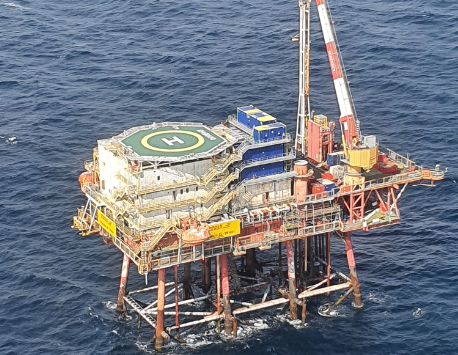
Hoover Ferguson stepped up decommissioning activity this year, securing a contract with leading Celtic-basin operator, PSE Kinsale Energy (KEL), for the supply of temporary accommodation units on the Kinsale Bravo platform. The Bravo platform originally operated as a manned facility, but was converted to an NUI in 2001 and the redundant platform accommodation was not suitable for remanning.
“Decommissioning is a complex process, so we knew it would be critical to invest time up front, engaging with our client to make sure we understood their needs and priorities in detail,” said Gary Wilson, vice president of Hoover Ferguson’s European business.
Kicking off with an in-depth requirements-gathering process like this provided the Hoover Ferguson team with insight into the challenges facing the customer, such as limited deck space, crane capacity and platform complications.
“This approach not only helps us develop a robust client proposal, it also enables us to build a picture of any potential risks and develop plans to mitigate these ensuring the highest safety and quality standards are consistently adhered to.”
It’s here that Hoover Ferguson’s experience of installing modules on a range of offshore platforms and rigs comes into play, as the team can often offer up solutions that are both practical and efficient.
“Every platform is unique and by conducting a bespoke survey we can often determine ways to improve the efficiency of the layout or condense the installation time,” Wilson said.
On this project, it quickly became clear that limited crane capacity would demand exacting load-out and installation plans.
“Usually we’d send our own resources offshore to support installation, but Covid-19 prevented this, so we prepared work-packs to help the client at installation and were able to send staff offshore to support the commissioning phase,” Wilson added.
The Hoover Ferguson team also identified that since the client required specified modules to operate as areas of temporary refuge, enhanced testing of the modules’ seals would be necessary. This involved assembling the modules onshore, exactly as they would be on the platform, then independently testing them to make sure they were safe for use as a temporary refuge.
The onshore testing confirmed the team’s in-house calculations, providing confidence that once installed, the independent assessor would issue appropriate certification ensuring both client and regulators’ requirements were met.
“This project not only enhances our already expansive offshore experience it demonstrates we provide value and competitive expertise in the field of decommissioning,” concluded Wilson.
For further information visit www.hooverferguson.com
